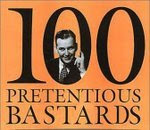52% of Californians voted for Proposition 8, and made it into law. Granted, it was an extremely well-placed blow, coming with the Presidential election that was guaranteed to motivate the traditionally-undervoting segments of society who also just so happen to represent the majority of the church-going, Bible-as-law conservatives. Three steps forward, two steps back. Had a marriage equality amendment been in any other election, it would have passed. Seriously - the people who vote in non-presidential elections are usually those with a dog in the fight, and I believe California is liberal enough to make that happen. Problem is that it can't be made into a religious choice, it must be a moral one - if Joe Voter walks into a booth and reads "Marriage Equality," he's going to vote yes. It makes him seem like a good guy - equality and all that jazz. Now, with that same scenario, after his church and the media and everyone else has said "This is against God" he's not going to vote against God, after all. Hence, Proposition 8 was passed.
Now if I understand it correctly, the challenge made on Proposition 8 was that the legislature should have had to approve it first. The court could not find that this was so without destroying the way the California Constitution functions.
That being said, why the hell didn't they pick a better argument? Get this - this is the next challenge:
Prominent lawyers Theodore B. Olson and David Boies filed a lawsuit Friday in U.S. District Court on behalf of two gay men and two gay women, arguing that Proposition 8 violates the U.S. constitutional guarantee of equal protection and due process.
Olson said he hopes the case, which seeks a preliminary injunction against the measure until the case is resolved, will wind up before the U.S. Supreme Court. He is a former U.S. solicitor general who served in high-level Justice Department jobs in the Reagan and George W. Bush administrations.
Jesus, couldn't they have done this from the beginning? Or were they too afraid of Republicans to want to throw the Equal Rights into the mix? God, I'm really beginning to disrespect liberals. They claim to want equality, but in reality they're too afraid of losing what they have to fight for the issues they claim to stand for. Instead they play watchdog over nomenclature and inane policy (I would put a citation in here, but I was overwhelmed when I looked for the thread...)
Don't get me wrong - I'm a filthy non-activist liberal preaching on my blog about the things that I think are right. But I'm going to law school in the fall for civil policy. I think I'm in a unique position to be able to do something once I understand the rules of the game. How many other lawyers were on free lunch, were a minority in their high school, put themselves through college (with the help of Uncle Sam)? I'd go on but it just seems like tooting my own horn...the point is that I still want to make a difference, and I'm gullible enough to believe I can be a hero in my own way.


2 comments:
don't stop thinking like a hero. The moment you get jaded you become one of those lawyers everyone jokes about.
I think that they anticipated that if losing in the California Supreme court with a constitutional argument that they would eventually have an appeal to the Supreme Court that shows justiciable cause because it has a direct constitutional application and interpretation. That ensures a hearing, at least, and forces the court to consider it as a constitutional violation.
This, like civil rights, won't be solved by state courts. It will be resolved by the Supreme Court on issues of equality.
It looks like what the court now actually did wasn't uphold the propositions definitions. It actually just protected the proposition's existence. From the summaries of commentary I have read, the judges didn't go into explanations of purpose for the particular law, but rather defended the proposition itself and upheld the 'idea' of a proposition and the court not being above voter actions.
The good part about this is if they follow precedence and the next time voters propose a proposition that passes and re-establishes same sex marriage, they'll be bound to support that one, too, in its place.
Post a Comment